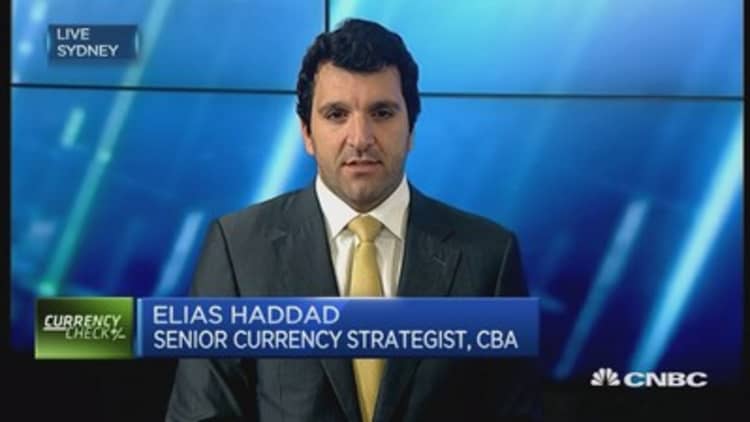The European Central Bank (ECB) said on Wednesday it would temporarily pause its massive bond-buying program between December 22 and January 1, resuming the purchases on January 4.
The move is "in anticipation of lower market liquidity during this period and in order to reduce possible market distortions".
The bank, which controls monetary policy across the 19 countries that use the euro, said purchases between November 27 and December 21 would be somewhat frontloaded.This is "to take advantage of the relatively better market conditions expected during the early part of the month."
ECB President Mario Draghi has hinted that that the bank could look to ramp up or extend its 1 trillion euro ($1.1 trillion) quantitative easing (QE) program.
At the moment, the ECB purchases 60 billion euros worth of assets each month and has committed to doing so until at least September 2016.
Its next monetary policy meeting and subsequent media conference with Draghi will take place on December 3 in Frankfurt. An announcement on expanded asset purchases is hotly anticipated and may roil markets, particularly given that the U.S. Federal Reserve is seen making a historic interest rate rise in the same month.

It is also possible that the central bank might cut the interest rate on its deposit facility further into negative territory. The rate is currently -0.2 percent, meaning that private banks are effectively charged for parking money with the ECB.
"The degree of monetary policy accommodation will be re-examined at the December monetary policy meeting," the ECB said in its "financial stability review" on Wednesday.
"In the meantime, the monthly asset purchases of 60 billion euros will continue to be fully implemented. These purchases are intended to run until the end of September 2016, or beyond, if necessary," it later added.
Reuters reported on Wednesday that municipal debt was under consideration for inclusion in the program, citing unnamed ECB officials. These officials said that buying rebundled loans at risk of non-payment had been discussed in preparatory meetings, but that this was highly unlikely for now.
They also suggested that any cut to the deposit rate could be softened by offering a variable rate to banks, depending on how much money was placed with the ECB.
Some ECB policymakers are seen opposing the expansion of QE, with Sabine Lautenschlaeger, a German member of the bank's six-person executive board, publicly against such a move.
"I don't see any reason for further monetary policy measures, especially not for an extension of the (asset) purchase program," she said on Monday in Munich, according to Reuters.
Carsten Brzeski, chief economist at ING-DiBa, saw Draghi and the ECB doves winning out.
"While stronger-than-expected confidence indicators could motivate some ECB members to pitch the old Prince song 'When doves cry' and argue against new ECB action, Draghi's determination at the October meeting combined with continued underlying economic weaknesses and the absence of any inflationary pressure should be decisive in launching QE2," he said in a research note on Tuesday.
Morgan Stanley warned that an expanded QE program and the "dangerous experiment" of negative deposit rates could prove detrimental for banks.
"Any expansion of the ECB's QE risks flipping the effect from a positive to a negative for many euro zone banks — possibly prompting an end to free banking in Europe and starting a battle to shift models to commissions," analysts led by Huw Van Steenis said in a Morgan Stanley report forwarded on Wednesday.
— By CNBC's Katy Barnato and Antonia Matthews.



